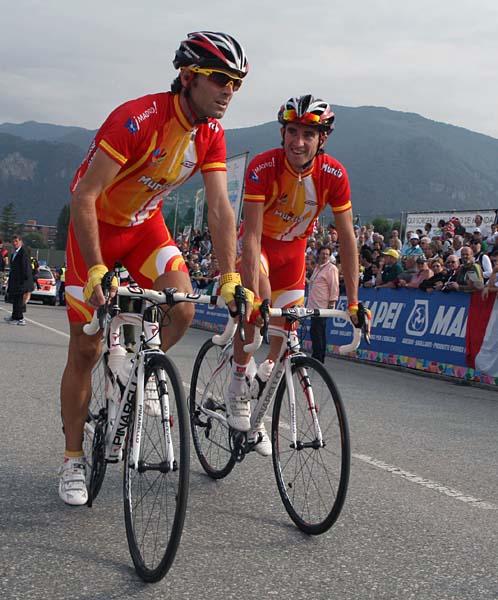Opinion: Spanish cycling teetering once again
Fewer Spanish teams after globalization, doping scandals

The news that French savings bank Caisse d'Epargne is set to end its sponsorship of what has long been Spain's premier cycling team is only the latest of many blows the sport has suffered in what has always been one of its traditional strongholds.
A glance through this year's calendar reveals huge gaps between events in Spain, most notably in the very heart of the season when there will be nothing to get excited about between late May's Tour of Asturias and mid-July's Tour of Madrid. And, let's face it, those two are races that will get hardly anyone revved up beyond Spain's smaller teams.
Except there aren't any of these smaller teams either. As well as being hit at the top level, Spain is also struggling in the Pro Continental layer. There are now just two Spanish outfits at each of these levels when not too many years ago, there would probably have been eight or 10. Drop another level down to Continental status, and it's even worse, with just Orbea, located in Basque, flying the Spanish flag.
The reasons for this rapid demise are not too difficult to see. The scandals caused by the uncovering of two huge doping rings have played a huge part, wrecking the careers of several notable Spanish performers, leaving question marks hanging over many others and impacting massively on cycling’s traditional popularity. Add in the crushing dominance of football of the Spanish sporting scene and the rise of several other sports in Spanish sporting consciousness - including tennis, Formula 1, motor-racing and, increasingly, NBA basketball - and cycling is very much on the decline.
At the same time, it does seem there's something else more fundamental going on in cycling, as was suggested by UCI president Pat McQuaid during last week's Tour Down Under. The "mondialisation" of the sport that was the goal of McQuaid's predecessor, Hein Verbruggen, is now very much under way. ProTour races are not only taking place outside Europe, but are thriving. Teams from outside cycling's heartlands are thriving, too.
Katusha and Sky are the most obvious examples, an Australian ProTour outfit could be the next as the pro peloton becomes more international season by season. For the first time ever, Spanish riders are being drawn to these teams in very significant numbers as opportunities dwindle at home.
The good news for riders, race organisers and fans in Spain is that Caisse d'Epargne team manager Eusebio Unzué had known about its sponsor's end-of-2010 departure for some weeks and has already been talking to prospective new backers. According to reports in Spain, these include a major company in the team's home region of Navarra. Unzué will surely have contact too with Spain's F1 superstar, Fernando Alonso, who talked about starting an Alberto Contador-led team, but will surely have plenty on his plate with Ferrari now expecting him to deliver the F1 drivers' world championship.
Get The Leadout Newsletter
The latest race content, interviews, features, reviews and expert buying guides, direct to your inbox!
Spanish commentators are already suggesting that the best outcome to the current crisis in the country would be the formation of an Unzué-Contador-Alonso troika that would unite Spain's top management team, rider and, arguably, sporting star.
This may not signal a return to the good old days of several Spanish teams taking each other on at decent races week after week, but it would establish a squad that could compete with the likes of Sky, RadioShack, HTC-Columbia, Katusha and others that are rapidly moving cycling to a new and more international era where the traditional cycling nations no longer dominate the team list and racing calendar as they once did.
Peter Cossins has written about professional cycling since 1993 and is a contributing editor to Procycling. He is the author of The Monuments: The Grit and the Glory of Cycling's Greatest One-Day Races (Bloomsbury, March 2014) and has translated Christophe Bassons' autobiography, A Clean Break (Bloomsbury, July 2014).